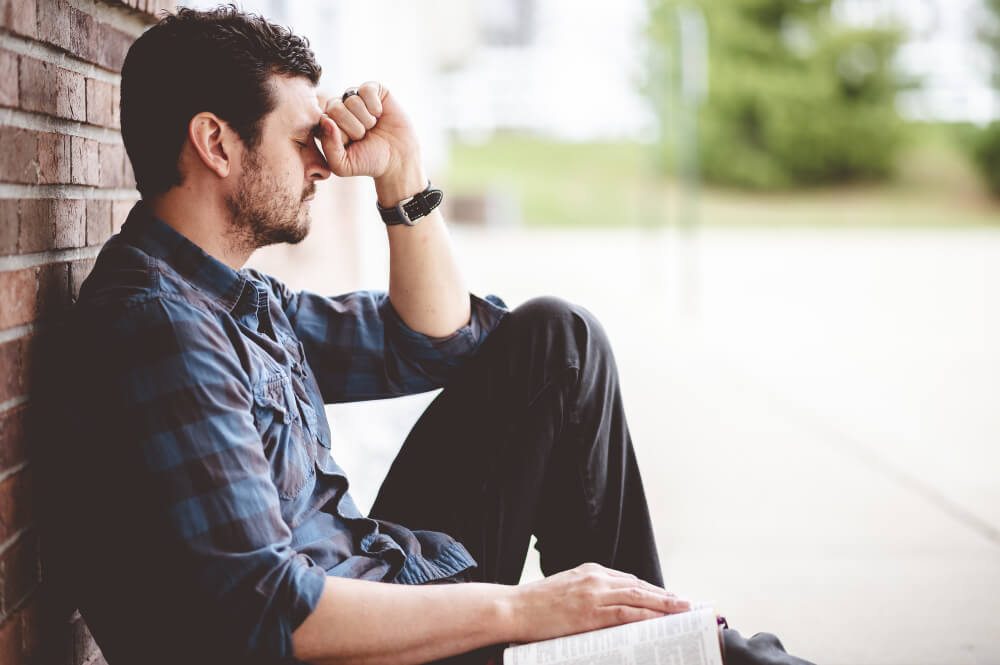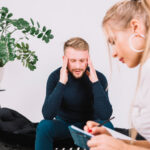Anxiety is one of the most common presenting issues at Mindful Health Counselling. While it may not be the cause of all the problems people encounter in life, it is almost always mentioned in a negative light as an addition or reaction to the problem. It is not surprising, as it is a common, normal human experience, and a necessary part of the human experience.
Let’s look at anxiety in isolation.
It is an evolutionary trait inherited from our distant ancestors. One that was essential to their survival and ability to initiate safety mechanisms specific to the situation. It is an important component of the human condition that serves the purpose of – signalling when there is impending danger, warning of a potential threat, preparing the body and mind for an appropriate response & initiating/creating a safety defence plan. It still serves this purpose; however, the impending danger is relative to the ages.
For example – Our neanderthal cousins, after witnessing a tribe member eaten by a bear in a cave, would experience anxiety when entering another cave, sensing the danger. Perhaps this would make them avoid the cave altogether and create different/safer hunting strategies.
In life today, anxiety presents when challenges arise, however the threat level is different. It may not be life and death, it may arise when faced with difficult or unsettling situations i.e. social situations, fear of being judged, nervousness, preparing for an exam or work commitment, walking alone at night, recalling painful memories…
Anxiety serves an important role in human life, that is protection and preparation.
Here are a few common questions that clients ask about anxiety, and the answers I give.
How to overcome anxiety?
I asked them what emotions could identify when they felt anxious. Bring the focus to these emotions, instead of the content/story in your mind that creates this feeling of anxiety. Then we are looking at catering to specific emotions and developing a better relationship with them, instead of looking at how to overcome anxiety.
How to fight anxiety?
Fighting anxiety sounds challenging and it seems you intend to avoid it. Perhaps the question would be, how can I lessen the impact and develop a better relationship with these difficult thoughts/feelings/emotions that arise, as opposed to how to fight anxiety? Tell me about your current strategies used to fight anxiety, as they may well work short term, perhaps we can look at some new strategies to help long term.
Can you get rid of anxiety?
Is anxiety the problem or is it the painful thoughts – memories, regrets, judgments, self-blame, unhelpful stories etc? Developing a more effective method of coping with difficult emotions and feelings will help. Getting rid of anxiety whether it is possible or not, may well be removing a helpful and normal survival mechanism from your nature. Can you get rid of anxiety? Can you get rid of nervousness?
How to not have anxiety?
Anxiety is a part of the human experience. To not have any sense of anxiety would make life difficult and dangerous. I ask the client about what happens when it arises and what do you do to cope. This opens a sense of curiosity about the feelings and emotions that accompany the anxious feeling. How to not have anxiety would be like asking how can I remove this powerful, essential, normal and helpful warning & safety system on my side in my life.
How can I treat anxiety without medication?
Learn skills that develop psychological flexibility, such as – thought defusion, mindfulness techniques that bring you to the present moment, acceptance, value-stimulating actions when you notice anxiety, and become curious about the feelings and emotions that accompany anxiety. These skills and techniques are practised and taught in and out of sessions with anxiety management counselling at Mindful Health Counselling.
The therapy style I practise ACT, has 6 main core processes.
- Acceptance
- Thought defusion
- Values
- Contacting the present moment
- Committed action
- Self as context.
These core processes contribute to developing psychological flexibility, which is an essential and extremely effective character trait of not only coping with anxiety but all the wonderful and interesting emotions and feelings available to us as humans, in this journey of life.



